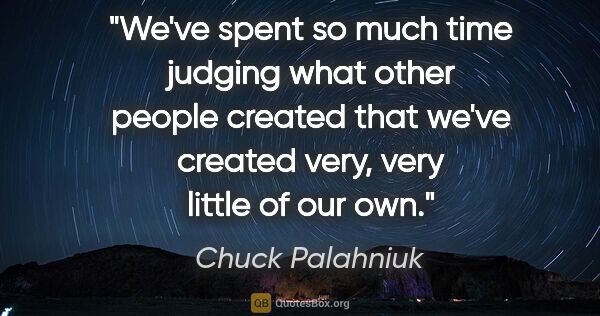Judged Quotes (page 41)

[T]he horrible thing about all legal officials, even the best, about all judges, magistrates, barristers, detectives, and policeman, is not that they are wicked (some of them are good), not that they are stupid (several of them are quite intelligent), it is simply that they have got used to it. Strictly they do not see the prisoner in the dock; all they see is the usual man in the usual place. They do not see the awful court of judgment; they only see their own workshop.
Gilbert K. Chesterton
Even those who have an air of being wise judge of others only, and do not know themselves. It cannot be in reason to know others and not to know oneself. Therefore one who knows himself may be said to be a man who has knowledge. Though our looks be unpleasing, we do not know it. We do not know that our skill is poor. We do not know that our station is lowly. We do not know that we grow old in years. We do not know that sickness attacks us. We do not know that death is near. We do not know...
Yoshida Kenko

To square the records, however, it should be said that if the Calvinist does not rise as high, he usually stays up longer. He places more emphasis on the Holy Scriptures which never change, while his opposite number (as the newspapers say) tends to judge his spiritual condition by the state of his feelings, which change constantly. This may be the reason that so many Calvinistic churches remain orthodox for centuries, at least in doctrine, while many churches of the Arminian persuasion often...
Aiden Wilson Tozer
They [intellectuals] coined most of the slogans that guided the butcheries of Bolshevism, Fascism, and Nazism. Intellectuals extolling the delights of murder, writers advocating censorship, philosophers judging the merits of thinkers and authors, not according to the value of their contributions but according to their achievements on battlefields, are the spiritual leaders of our age of perpetual strife.
Ludwig von Mises
Perhaps, like most of us in a foreign country, he was incapable of placing people, selecting a frame for their picture, as he would at home; therefore all Americans had to be judged in a pretty equal light, and on this basis his companions appeared to be tolerable examples of local color and national character.
Truman Capote


